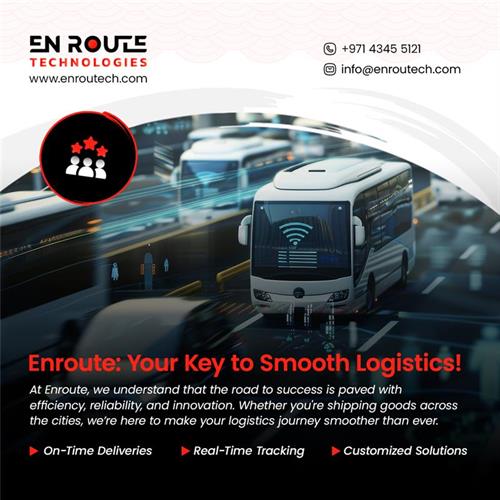Enhancing Fleet Performance Through Intelligent Tracking Solutions

In today’s fast-moving business world, companies depend on efficient transportation and precise delivery to maintain their competitive edge. With operational costs rising and customer expectations at an all-time high, fleet managers must adopt smarter digital solutions to optimize performance. Technologies such as GPS Tracking Software and comprehensive Fleet Management System platforms have become essential tools in achieving that goal.
Real-Time Tracking for Total Operational Visibility
One of the most valuable aspects of modern fleet management is real-time visibility. GPS tracking provides an instant window into the exact location and movement of each vehicle, enabling managers to make informed decisions on the spot. This capability eliminates guesswork, enhances accountability, and ensures timely deliveries.
Fleet supervisors can now monitor routes, identify delays, and communicate instantly with drivers to reroute them when needed. Live updates improve coordination and reduce idle time, while alert systems notify managers about speeding, prolonged stops, or unauthorized vehicle use. Such oversight boosts operational efficiency while promoting safety and discipline across the fleet.
Improving Efficiency Through Data Analytics
Every journey produces a wealth of data—travel time, idle periods, distance, and fuel usage. GPS tracking systems compile this data into meaningful analytics, empowering decision-makers to identify inefficiencies and make evidence-based improvements.
For example, analyzing driving behavior helps companies detect patterns that lead to excessive fuel consumption or mechanical strain. Correcting these behaviors through driver training can significantly reduce costs over time. The result is a fleet that runs smarter, consumes less, and delivers more consistent performance.
Integration for Streamlined Management
The digital evolution of logistics requires more than location tracking—it demands complete integration. A unified Fleet Management System consolidates all operational processes, from dispatching and maintenance to payroll and reporting, into one accessible platform.
By merging GPS data with operational workflows, fleet managers gain holistic control over daily activities. Dispatchers can assign routes based on proximity and traffic conditions, maintenance teams can track service intervals, and finance departments can access detailed fuel and mileage reports—all in one place. This seamless integration reduces administrative workload, prevents data duplication, and boosts overall transparency.
Predictive Maintenance and Cost Reduction
Equipment downtime is one of the most significant challenges in logistics. Predictive analytics within modern fleet systems can detect maintenance issues before they turn into costly breakdowns. By monitoring engine performance, temperature, and mileage, the system can schedule service alerts automatically.
This proactive approach ensures that vehicles stay in top working condition, lowering repair expenses and extending equipment lifespan. Over time, consistent maintenance practices contribute to a more reliable and cost-effective operation.
Driver Safety and Performance Management
Driver performance has a direct impact on safety, operational costs, and customer satisfaction. Tracking solutions record valuable data about driver behavior, allowing managers to promote accountability through clear performance metrics.
Features such as automated driving reports and safety scoring help identify risk areas. Managers can use this information to reward good driving habits and address unsafe behavior with targeted training programs. Ultimately, this creates a culture of responsibility and professionalism throughout the fleet.
Sustainability Through Smart Operations
Sustainability is becoming a top priority for businesses around the globe. Intelligent tracking and fleet systems help companies minimize their environmental footprint by optimizing routes and reducing fuel wastage.
For instance, efficient route planning eliminates unnecessary mileage, and idle time monitoring ensures engines aren’t running longer than necessary. As a result, companies save fuel and reduce carbon emissions—aligning with global efforts toward greener, more sustainable transportation.
Enhanced Customer Experience Through Transparency
Modern consumers expect visibility and reliability from service providers. GPS-powered solutions allow companies to share accurate delivery updates and estimated arrival times with customers. Real-time tracking provides peace of mind, enhances transparency, and builds trust.
Additionally, the ability to quickly respond to delivery changes or delays strengthens the company’s reputation for professionalism and reliability. These improvements create loyal customers who value dependable service.
The Future of Fleet Technology
The logistics industry is rapidly moving toward automation, AI-driven insights, and IoT connectivity. Future Fleet Management System will predict trends, automate dispatch, and self-adjust routes based on traffic or weather conditions.
Businesses that invest in these advancements early will not only lower costs but also gain a competitive advantage through efficiency and scalability. The future of fleet operations lies in the synergy of smart hardware, predictive analytics, and cloud-based management.
Conclusion
The combination of GPS Tracking Software and Fleet Management System is revolutionizing fleet operations worldwide. These technologies deliver the visibility, control, and intelligence needed to manage complex logistics with precision.





